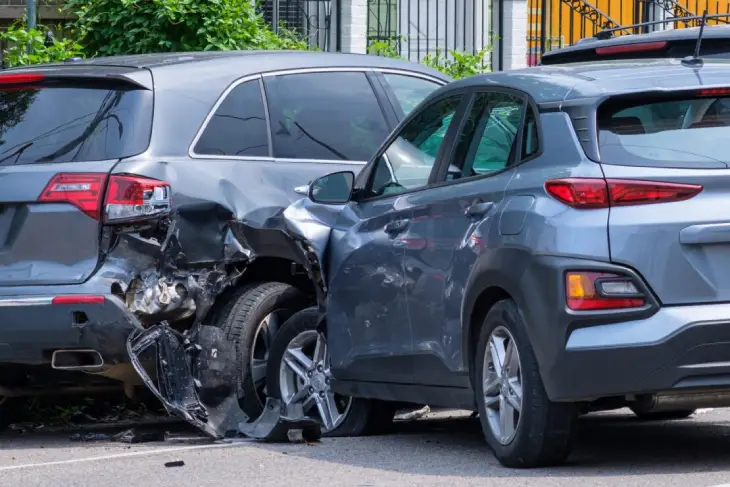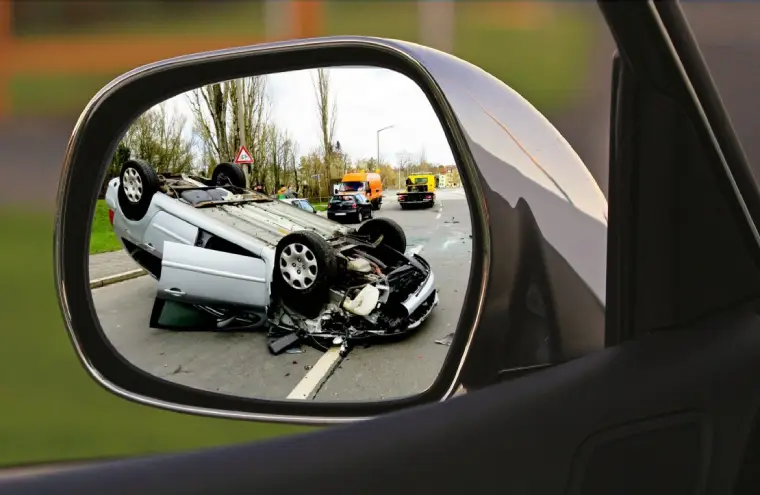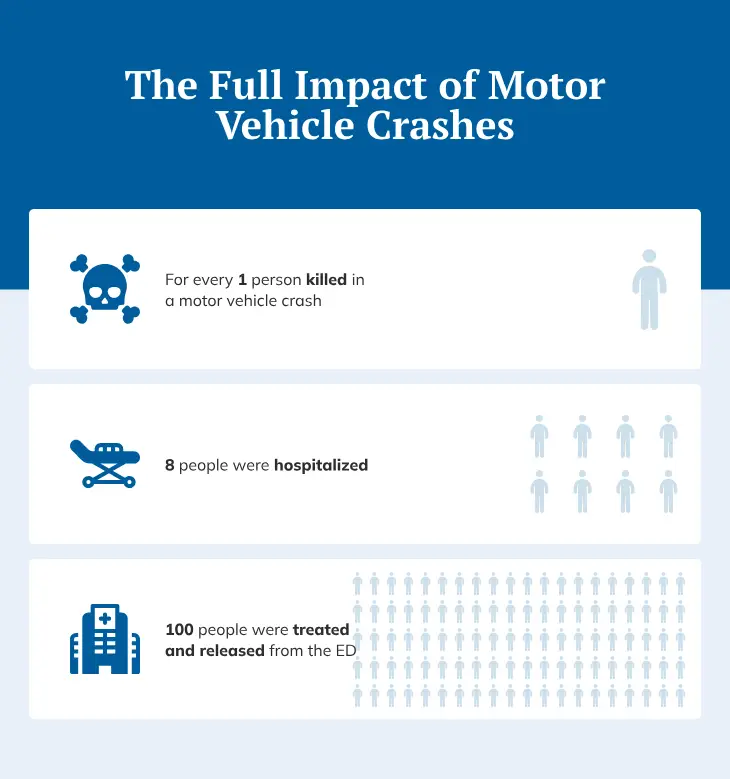How Long Should You Be Sore After a Car Accident?

Directly after your car accident, you may notice that your injuries start to worsen. This often happens if you have soft tissue injuries or if the wounds were more serious than you originally imagined. The best thing to do is get checked out by a doctor once you have been injured. Not only would they give you the best medical advice, but they will let you know what injuries you have. Also, if you understand what wounds you have, this will help your accident attorney determine how much compensation you should receive.
Soreness long after a car accident is a bad sign. It means the wounds are severe, and they’re probably not healing correctly. There are many reasons this can happen. Get a recommendation from medical doctors or find out how serious your injury is. This could be compensated for, reach out to our dedicated law firm to learn more. Schedule a call with Grossman Law Offices now for a free consultation.
How Serious Is Soreness After A Car Accident?
No matter what you believe, see a doctor as soon as you’ve been in a car accident. Directly after your car accident, your adrenaline is probably running high and concealing any pain or discomfort you might feel due to the collision. Even with no significant injuries, minor aches and stiffness can persist after a car crash. Vehicles can create a lot of damage to bones, muscles, ligaments, tendons, and even the nervous system. You’ll probably experience pain after the car accident while you begin to recover. While you’re recuperating, discomfort is occasionally expected and typical, but it has the potential to worsen and become more severe. If you continue to have serious soreness more than six weeks after an accident you should see a doctor again to have your injuries evaluated and seek medical attention.
Signs That Your Injury Might Be Serious
After you experience a car accident, you may notice that you have delayed injuries that show up later. Some muscle injury symptoms may seem mild at first but can hint at more severe injuries that require medical attention. Some examples include:
Blurred Vision
Recurring lightheadedness and vision haziness can be a sign that you’ve experienced damage to your nervous system or brain trauma.
Numbness or Tingling
Any part of the body that has tingling or numbness that doesn’t go away can be a sign of severe nerve damage. For example, a pinched nerve may allude to a spinal cord injury.
Limited Mobility
When you have back pain that results in difficulty bending, crouching, and turning around, the wounds may be serious.
Severe Neck Pain
If you experience neck pain that radiates out or the soreness makes it difficult for you to twist your neck, then you might have issues with your cervical column or whiplash.
What Injuries Cause Soreness After a Car Accident?
Given that the human body has more than 650 muscles, it’s not surprising that muscular soreness following a car accident is incredibly common. The soft tissues of the body might sustain serious damage from trauma. Soft tissue injuries are caused by strains, sprains, and whiplash, frequently resulting in muscle soreness.
Specific Injuries That Result In Delayed Soreness
When you get injured in a car accident, some injuries take time to appear, which is why it’s important to see a doctor immediately after an accident. The most common injuries that result in soreness include the following:

Concussions
When the brain collides with the skull’s interior, a concussion can happen. Car accident victims can sustain concussions without hitting their heads on anything. A strong and rapid motion that forces the brain to smack the wall of the skull might cause a concussion. Signs that you might have a concussion include changes in sleeping patterns, poor appetite, sensitivity to light and sound, vertigo, headaches, and mood swings.
Whiplash
One of the most common injuries sustained in auto accidents is whiplash. The impact’s abrupt crash damages the tendons in the neck and shoulders by stretching and stressing them past their breaking point. In certain instances, accident victims will feel pain and soreness right away. Whiplash symptoms can begin the following day or even a few days after the accident. Problems with sleeping, blurry vision, ringing ears, and migraines are other signs of whiplash.
Blood Clots
Car crash injuries can result in serious blood clots. It may take a few days for symptoms to appear. Blood clots by themselves are generally not a huge concern because the body usually dissolves them. But can result in serious harm or even death if they are found in the heart or the brain. A common sign of blood clots inside the brain is headaches. They might occur with other traumatic brain injuries.
Back Injuries
Back discomfort is a common problem for most accident victims. This is due to the sudden jerking motion of a car coming to a halt or colliding with another automobile. Back pain often comes with other issues. For instance, sciatica or tingling or numbness in the limbs also inflicts back pain. However, instead of just muscle strain, it is caused by a pinched nerve if you received a herniated disc or another spinal injury. A spinal disc that has been ruptured or pierced by trauma develops into a herniated disc. When the spinal cord is injured this can make you vulnerable to severe and long-lasting damage.
Injured Organs
Because you get jostled around during an accident, you may suffer from internal bleeding. Internal bleeding may be detected by abdominal pain. Large black bruises, lightheadedness, and fainting episodes can all be symptoms of this life-threatening injury.
How Long Should the Pain Last?
The energy of a collision can severely injure individual muscle fibers when muscles are stretched during a crash. Muscle aches and soreness can result from blunt force trauma brought on by a car accident. You might be sore for a short or long time following your accident, and that could be perfectly normal. This is entirely dependent on your age, health, and lifestyle, in addition to the severity level of your accident. A slight fender bender will result in very little soreness, while a catastrophic accident can result in soreness that can last for years. For example, chronic back ache is a common issue for injuries such as ruptured spinal discs. When soreness goes beyond the normal healing process this can indicate more serious wounds than you initially noticed.
When to See a Doctor?
Severe pain may be the result of more serious injuries, such as brain damage, which require immediate medical attention. If these injuries are not treated soon, they may result in lasting damage or even death. Signs that you should see a doctor include the following:
Weakness In Extremities
Visit your doctor immediately if you feel weak in your arms or legs. Weakness in your limbs could be a sign that your accident left you with spinal cord damage or another catastrophic condition. When you find that your weakness is getting worse over time, reach out to your doctor or go to the emergency room.
Sharp Pains
If you feel pain in your abdomen or chest, it may be a sign that you have had serious trauma to those body parts. It’s possible that you’re experiencing internal bleeding or organ damage.
Pain Continues To Worsen
If you realize that your pain has not subsided, it may be a sign that your injury is worse than you imagined. Different people have different levels of pain tolerance, so you might not realize you have a serious wound until it’s too late. If your discomfort does not go away after the accident, visit your doctor.
Feeling Disoriented
When you continue to feel disoriented and confused and suffer from memory loss, you may have suffered a catastrophic injury. Brain damage often can result in reduced cognitive ability and can affect your ability to process information. If you feel disoriented or dizzy long after your accident, this can be a symptom of traumatic brain injury.
Problems Seeing Or Hearing
A sign that you have had a traumatic brain injury is if you start to have difficulty hearing, ringing ears, blurred vision, and even tunnel vision. Getting treated for these disorders as soon as possible will prevent them from worsening.
Why Seeing A Doctor And Attorney Is Important After Car Accident Injuries
After your car accident, you need to see a doctor quickly. Serious wounds, such as head and brain damage, can take days or even weeks to manifest. However, the longer you wait to seek medical treatment, the more serious and lethal these wounds may become. It is a good idea to visit a doctor directly after your auto accident, especially if you’re suffering from chronic pain.
Speak to your personal injury attorney about the physical discomfort and medical bills you had to tolerate because of your car accident. You can be reimbursed for these costs through a settlement claim. If you experience pain and suffering because of a severe injury, these are also another form of non-economic damage. Reach out to Grossman Law Offices now for a free consultation to find out how much you can be compensated.


